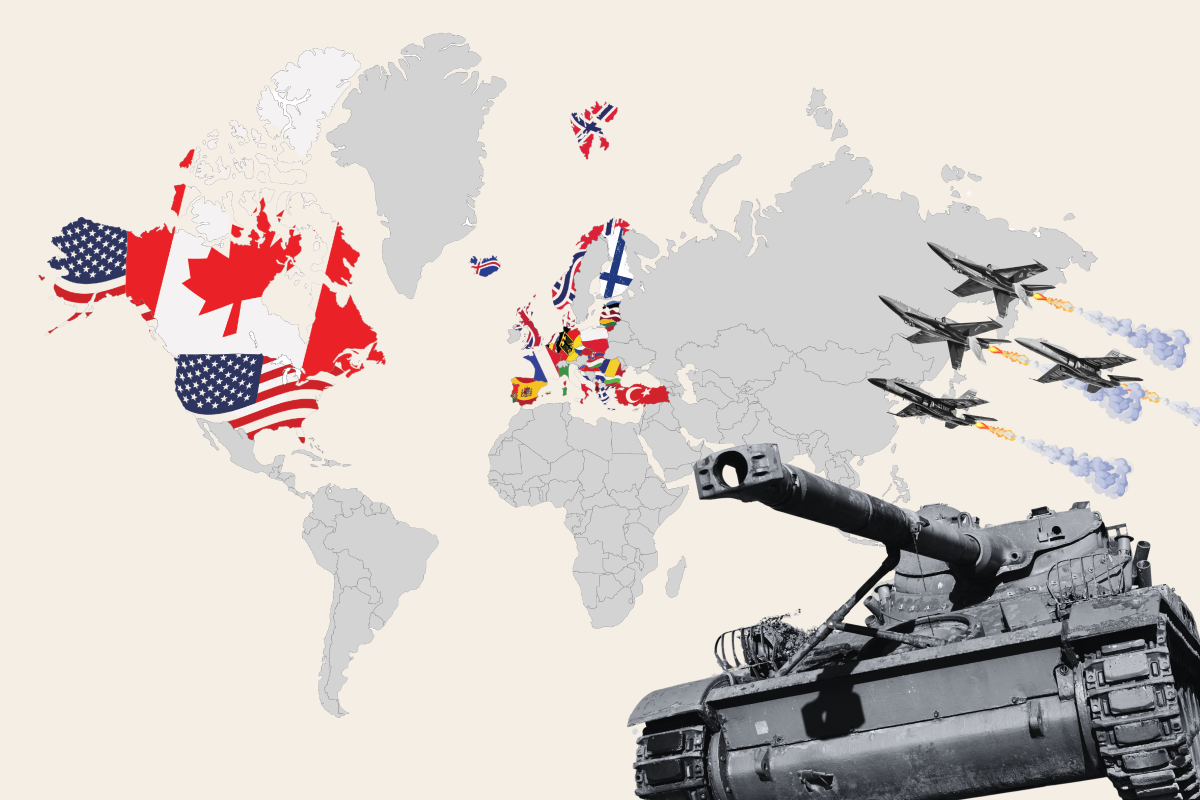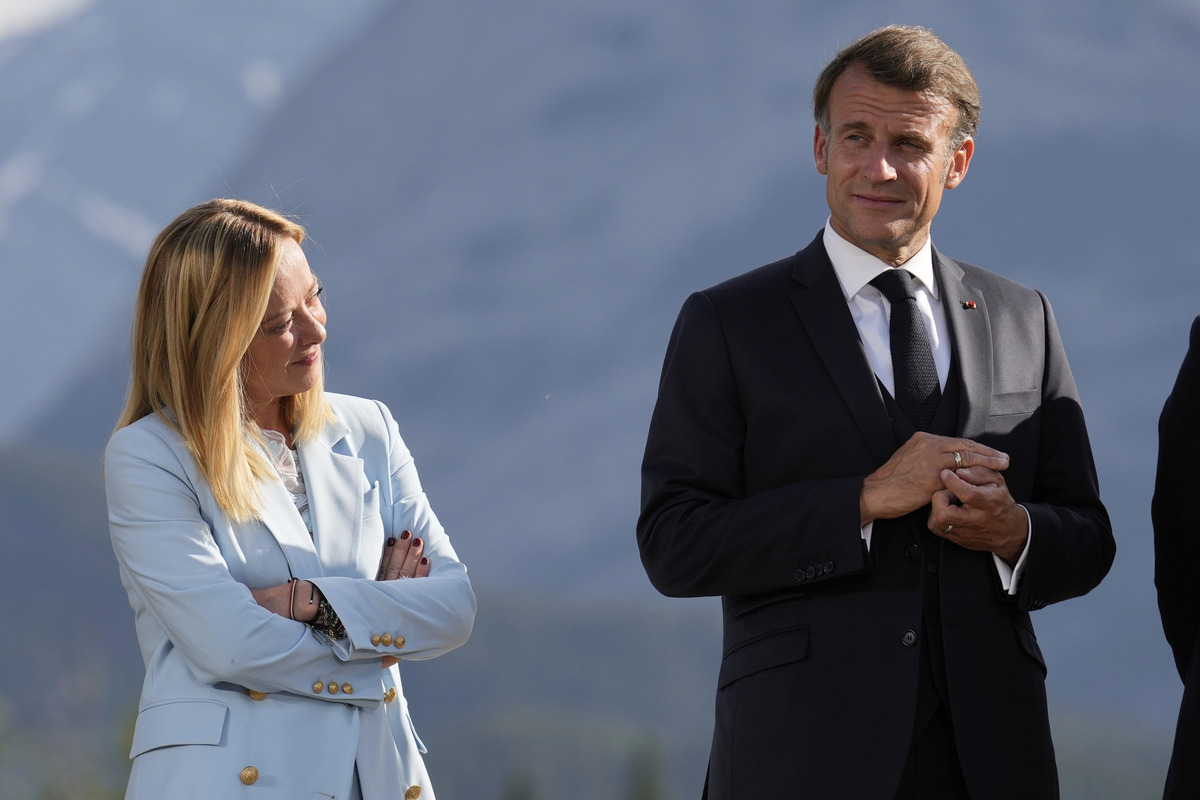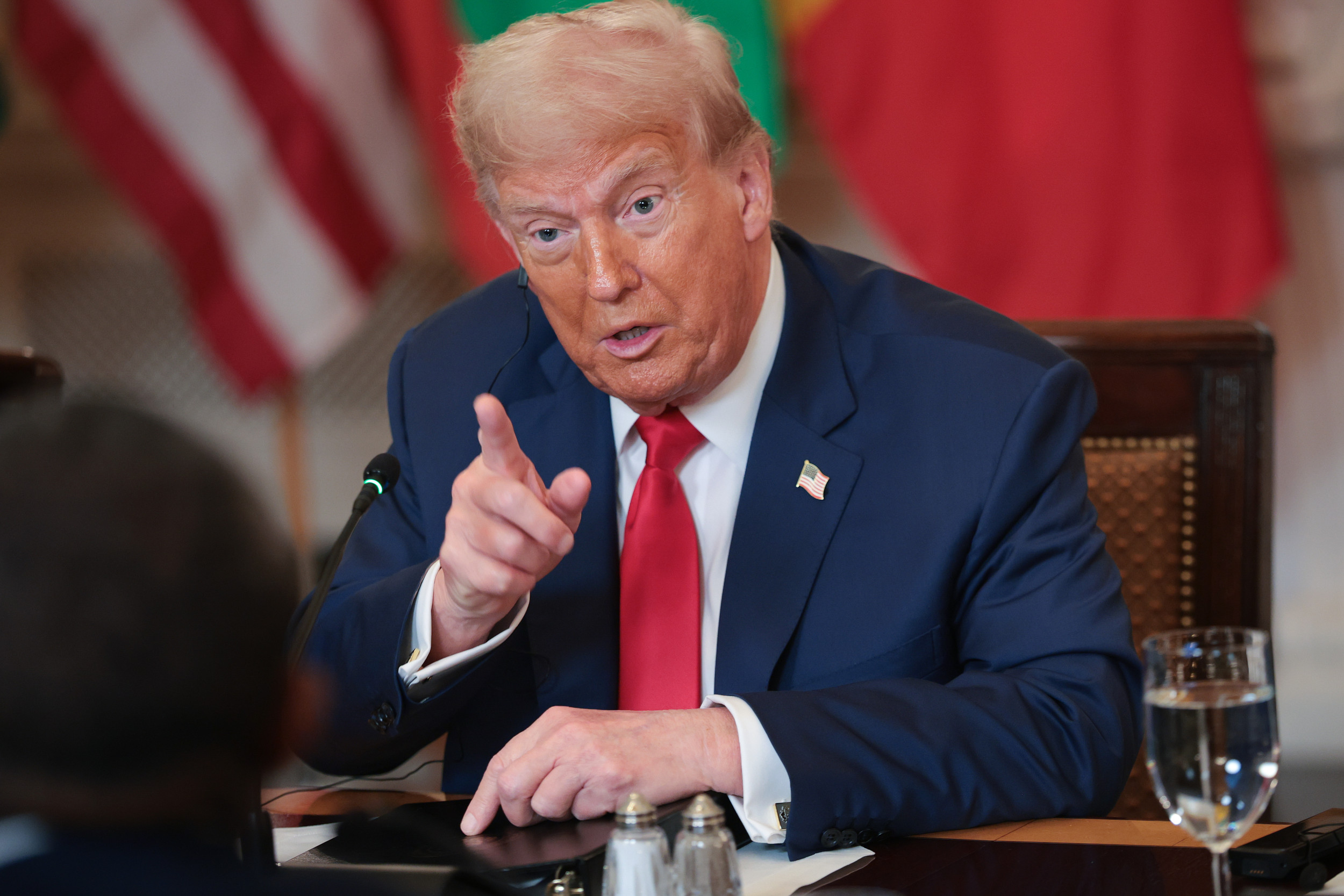🎙️ Voice is AI-generated. Inconsistencies may occur.
Former President Donald Trump's latest salvo against the NATO alliance has again thrown the transatlantic community into uncertainty, as leaders consider how to handle another divisive American presidential election campaign.
Speaking at a South Carolina campaign rally on Saturday, Trump, who throughout his first term lambasted NATO allies for failing to meet alliance spending targets, told attendees about a past conversation with an unnamed leader of a "big country" within the bloc.
The leader, Trump said, asked whether the United States would honor its NATO Article 5 collective defense obligations in the event of an outside attack, even if allies were not meeting the agreed spending targets. He said: "I said: 'You didn't pay? You're delinquent?'...'No I would not protect you, in fact I would encourage them to do whatever they want. You gotta pay.'"
NATO Secretary-General Jens Stoltenberg—who during Trump's presidency sought to blunt White House criticism by crediting the president with increased allied military expenditure—warned that the remarks "put American and European soldiers at increased risk."
President Joe Biden, meanwhile, described Trump's latest criticism of the alliance as "appalling and dangerous."
But for all the outrage, the divisive former president has some grounds for criticism. The majority of NATO nations—19, by the alliance's own count in July 2023—are still failing to spend 2 percent of GDP on their militaries, despite having agreed the target at the 2014 Wales summit.
Those having so far reached and surpassed the target are Poland (3.9 percent), the U.S. (3.49 percent), Greece (3.01 percent), Estonia (2.73 percent), Lithuania (2.54 percent), Finland (2.45 percent), Romania (2.44 percent), Hungary (2.43 percent), Latvia (2.27 percent), the United Kingdom (2.07 percent), and Slovakia (2.03 percent).
As of July 2023, those still falling below target were France (1.9 percent), Montenegro (1.87 percent), North Macedonia (1.87 percent), Bulgaria (1.84 percent), Croatia (1.79 percent), Albania (1.76 percent), the Netherlands (1.7 percent), Norway (1.67 percent), Denmark (1.65 percent), Germany (1.57 percent), the Czech Republic (1.5 percent), Portugal (1.48 percent), Italy (1.46 percent), Canada (1.38 percent), Slovenia (1.35 percent), Turkey (1.31 percent), Spain (1.26 percent), and Belgium (1.26 percent).
Luxembourg is the lowest spender, at 0.72 percent of GDP, though given its uniquely small size has its own goal of spending 2 percent of gross national income on its military. Iceland does not have its own military, so is not included in the figures.
If allied pledges made to Newsweek last month are fulfilled—and if Sweden finally becomes the thirty-second alliance member—during the course of 2024, half of NATO's members will reach the 2 percent mark before the beginning of the next U.S. president's term. Trump is currently the frontrunner in the Republican primary race and could face off against Biden in November.
But with so many still missing "the mother of all targets," as Fabrice Pothier—a former director of policy planning for NATO who worked on the Wales pledge—described the goal, decades of U.S. frustration with its allies are unlikely to ease.
"Two percent is basically about convincing the United States," Pothier told Newsweek.
NATO allies do appear to be moving in the right direction, despite the continued struggle to hit 2 percent. Military spending has increased significantly in recent years, and Russia's full-scale invasion of Ukraine is prompting new investments in the bloc's military industrial base and a hardening of its posture on Russian frontiers.
Last year, NATO nations also achieved the collective goal of dedicating 20 percent of all annual defense expenditure to major new equipment and related research and development.

fairness meter
About the writer
David Brennan is Newsweek's Diplomatic Correspondent covering world politics and conflicts from London with a focus on NATO, the European ... Read more




